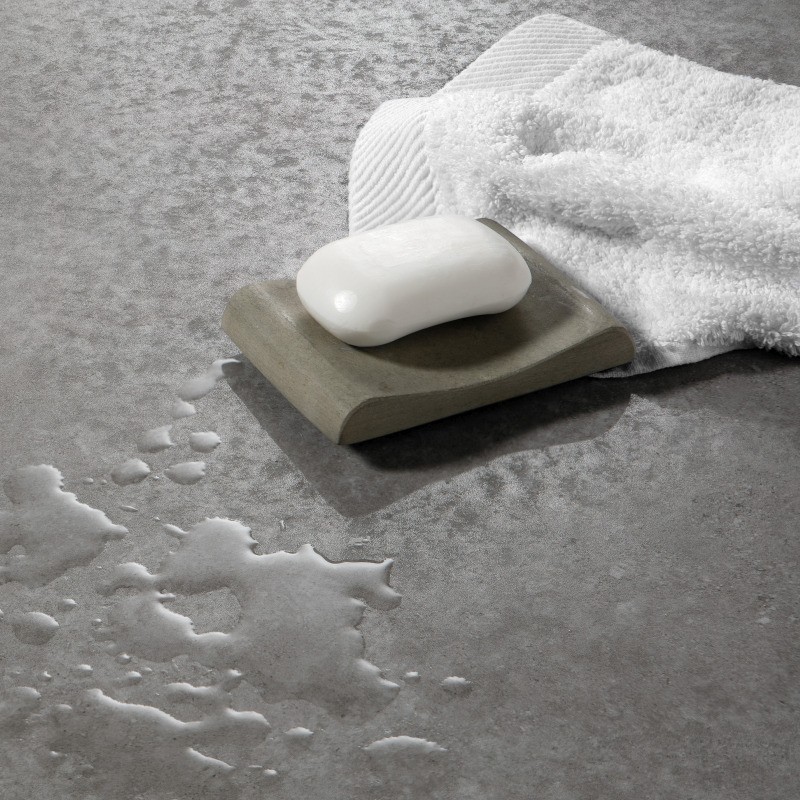When designing a bathroom, kitchen, or any other space that requires a tile floor, one of the key things to always keep in mind is safety.
Surprisingly, bathrooms are one of the most dangerous rooms in a home. This is because of the high rate of slips and falls due to the slippery nature of tile and the increased presence of water. To combat this problem, many companies have started developing slip resistant variations of their tile products.
But what exactly does slip resistant mean? Are all slip-resistant tiles the same? Keep reading to learn the answers to these questions and many more.
Terminology
The first thing you should know when exploring the reality of slip-resistant tile is that not all tiles that are branded as slip-resistant are the same. Tiles that are tested for this quality are assigned a rating or a grade that is on a sliding scale.
It is also important to note that there is no universally agreed upon method for testing this standard although some guidelines are set forth by regulatory agencies in some countries. However, the results from one country do not directly correlate with results collected in a different country.
As a result of the lack of standardised testing of tile for slip resistance, it can be said that the term is rather subjective. Additionally, there are a number of variables that make standardisation nearly impossible, including floor wetness, the speed in which the person is walking, and the footwear they are wearing among other things.
Despite these variables, there is still some use to looking for slip-resistant tile if you understand the standards of quality and the guidelines that producers in your country follow.
Tests
As mentioned above, there are many different ways to test how slippery a tile is, and many different variables involved when conducting this testing. Of the many types of testing, the two most common are ramp tests and pendulum tests.
Ramp Test
This test is actively used in several countries including Australia, New Zealand, the United States, and Germany among others.
Ramp tests must always be conducted in a lab. They involve a subject walking across the tiles. Gradually, the tiles are placed on a steeper and steeper incline until the tester can no longer maintain their balance. The steeper the incline becomes before the subject loses balance indicates a higher score or rating for the test.
The typical scale for this test only ranges from 9 to 13 inclusive, leading to a major criticism: each number encompasses a wide range of qualities. Another critique of this test is that it is costly to perform because of the required lab setting.
Pendulum Test
This test, also known as the coefficient of friction test, is often used in conjunction with the ramp test. This test involves a swinging pendulum that encounters the piece of tile being tested at the bottom of its arc. The portion of the arm meeting the tile is meant to mimic either a shod heel or a bare foot. The tile is then given a rating based on how successful it was at slowing the rate of the incoming pendulum.
One large advantage of this testing method is that it can be portable and used on site. This technique does not require a completely controlled laboratory setting.
However, a couple of disadvantages include its decreased effectiveness on surfaces with pronounced profiles and the lack of practical applications explored in which a tile might be expected to operate.
In conclusion, it is important to understand how tiles are evaluated and how they are able to qualify as slip-resistant tiles. As you have learned, unfortunately, it is not as straightforward as one would hope, but now you will be able to make a more informed decision when considering safety in the tiled rooms of your home.
Contact Us
At Ceramic Tile Supplies, we can help you to find the perfect slip-resistant tile or any other type of tile you desire to complete your home improvement project. We are one of the leading providers of slip-resistant tiles in Perth. Although the tile choosing process can be confusing and overwhelming, we will be with you every step of the way to walk you through it.
Please feel free to contact us at any time. We will be more than happy to discuss your project with you and help you get one step closer to having beautiful tile floors that are aesthetically pleasing as well as safe.

